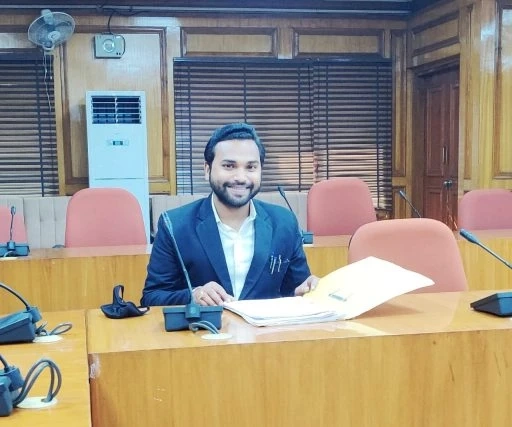Divorce law in India is governed by the Hindu Marriage Act, 1955, Special Marriage Act, 1954, and the Indian Divorce Act, 1869, depending on the religion of the parties involved. In this comprehensive guide, we will discuss the various aspects of this law in India, including the grounds for divorce, the process of divorce, and the rights and obligations of both parties.
The process of divorce varies depending on the act applicable to the parties. Under the Hindu Marriage Act, the parties must first try to reconcile through mediation. If reconciliation fails, they can file for divorce in court. Under the Special Marriage Act, the parties must give notice to the Marriage Registrar and can file for the case in court if there are no objections. Under the Indian Divorce Act, the parties must first try to reconcile through mediation, and then file for the case in court.
The rights and obligations of both parties in a divorce include custody of children, maintenance, property distribution, and alimony. The court may order one party to pay maintenance to the other if they are unable to support themselves. The court may also divide the property of the couple in a fair and equitable manner.
Grounds
Under Indian law, there are several grounds on which a divorce can be granted. These grounds are:
a. Adultery: If one party engages in extramarital affairs, the other party can seek a divorce.
b. Desertion: If one party abandons the other for a continuous period of at least two years, the deserted party can seek a divorce.
c. Cruelty: If one party is subjected to physical or mental cruelty, the victim can seek a divorce.
d. Conversion: If one party converts to another religion, the other party can seek a divorce.
e. Mental disorder: If one party suffers from a mental disorder that makes it impossible to continue the marriage, the other party can seek a divorce.
f. Incurable disease: If one party suffers from an incurable disease, the other party can seek a divorce.
g. Irretrievable breakdown: If the marriage has irretrievably broken down, either party can seek a divorce.
Process
The process in India depends on the religion of the parties involved. Here is a brief overview of the process for each religion:
a. Hindu marriage act: Under the Hindu Marriage Act, the parties must first try to reconcile through mediation. If mediation fails, the parties can file for divorce in court. The court will then hear the case and grant a divorce if it is satisfied that the marriage has irretrievably broken down.
b. Special marriage act: Under the Special Marriage Act, the parties must first give notice to the Marriage Registrar. If there are no objections, the parties can then file for divorce in court. The court will then hear the case and grant a divorce if it is satisfied that the marriage has irretrievably broken down.
c. Indian divorce act: Under the Indian Divorce Act, the parties must first try to reconcile through mediation. If mediation fails, the parties can file for divorce in court. The court will then hear the case and grant a divorce if it is satisfied that one of the grounds for divorce has been met.
Rights and obligations of both parties
When a divorce is granted in India, both parties have certain rights and obligations. These include:
a. Custody of children: If the couple has children, the court will decide who will have custody of them.
b. Maintenance: The court may order one party to pay maintenance to the other if the other party is unable to support themselves.
c. Property distribution: The court will divide the property of the couple in a fair and equitable manner.
d. Alimony: The court may order one party to pay alimony to the other if the other party is unable to support themselves.
How to Chose the Right Lawyer for Divorce in India?
Choosing the right lawyer for your case in India can be a crucial decision, as it can have a significant impact on the outcome of your case. Here are some tips to help you choose the right lawyer:
Look for a specialist: Look for a lawyer who specializes in family law and has experience in handling divorce cases. This can help ensure that the lawyer has the necessary knowledge and skills to handle your case.
Check their experience: Look for a lawyer who has experience in handling cases similar to yours. Ask them about their experience and success rate in handling such cases.
Check their reputation: Check the lawyer's reputation by reading reviews from their past clients. You can also check with the local bar association for any complaints or disciplinary action against the lawyer.
Consider their communication skills: Look for a lawyer who has good communication skills and is able to explain legal concepts in a way that you can understand. Communication is key in a divorce case, and you want a lawyer who is responsive and accessible.
Check their fee structure: Discuss the lawyer's fee structure upfront to avoid any surprises later. Look for a lawyer who is transparent about their fees and does not charge exorbitant amounts.
Schedule a consultation: Schedule a consultation with the lawyer to discuss your case and to get a sense of their approach to handling it. This can help you determine if the lawyer is a good fit for you.
Conclusion
Divorce law in India can be complex and varies depending on the religion of the parties involved. However, understanding the grounds for divorce, the process of divorce, and the rights and obligations of both parties can help you navigate the process with ease. If you are considering divorce, it is important to seek the advice of a best divorce lawyer who can guide you through the process.


